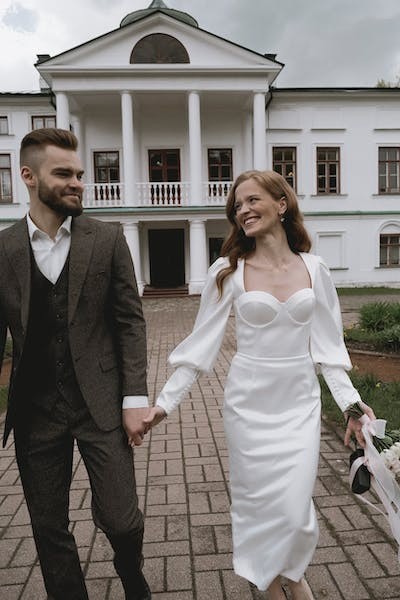
Indonesian Muslim Rituals: Honoring Culture and Faith
Indonesian Muslim Rituals: Honoring Culture and Faith
Introduction
The rich tapestry of Muslim ceremonies found in Indonesia, a nation well-known for its vibrant cultures and various traditions, serves as evidence of how deeply entwined Islam and culture are. These ritualistic ceremonies are manifestations of identity, community, and spirituality rather than merely rituals.
An Overview of Indonesian Muslim Ceremonies
Because they combine religious observance with cultural tradition, Muslim rites in Indonesia are particularly well-liked by the populace. The majority of people in the nation practice Islam, which has a wide variety of rites that reflect the numerous ethnic groups that make up the archipelago.
The Function of Muslim Ceremonies in Indonesian Society
Muslim rites in Indonesia are essential for maintaining communal ties and forming social alliances. These rituals serve more purposes than just fulfilling religious responsibilities; they provide a venue for gatherings of loved ones to rejoice and encourage one another.
Welcoming a New Life: Birth and Naming Ceremonies
The birth and naming ceremony is one of the happiest Muslim rituals in Indonesia. This event celebrates the arrival of a new member into the family and neighborhood. A key ritual in this celebration is the "Aqiqah" ceremony, in which a sacrifice is given to show appreciation for the child's birth. Giving the kid a meaningful name—often taken from the Quran—is another part of this ceremony.
Wedding Rituals: Joining Two Souls
Islam views marriage as a sacred institution, and Muslim weddings in Indonesia are a fusion of cultural and religious traditions. The marriage contract, known as the "Akad Nikah," is frequently the first part of the ceremony. This is followed by a feast known as the "Walima." These events are distinguished by elaborate décor, bright traditional dress, and sincere prayers.
Age of Legal Puberty: The Ceremony
The "Puberty" ceremony, also known as "Syukuran," marks the passage from childhood to maturity. Expressions of thanks to Allah for leading the young person through puberty are used to honor this occasion. The emphasis of the ceremony is on communal ideals, personal development, and religious teachings.
Fasting and Celebrations During Ramadan and Eid
The cheerful holiday known as "Eid al-Fitr" marks the conclusion of Ramadan, which has great significance in the Islamic calendar. The month of fasting is a period of intense spiritual contemplation, self-control, and heightened devotion. Families and communities get together during Eid celebrations for prayers, meals, and charitable deeds.
Funeral rites: In Indonesian Muslim ceremonies, the "Janazah," the funeral prayer, and burial customs are very important. These rituals are a reflection of the belief in reincarnation and respect for the dead. These rites center on prayers, washing the body, and a straightforward but moving burial procedure.
Muslim ceremonies in Indonesia are influenced by culture
The nation's rich cultural tapestry enriches Indonesian Muslim rites. These ceremonies gain additional layers of distinctiveness from local traditions and customs that have been inspired by the diverse ethnic groups. Every culture, from Javanese to Balinese, Sumatran to Sundanese, adds its own distinctive flavor to the festivities.
Unity in Indonesian Muslim Ceremonies while Embracing Diversity
Although Indonesian Muslim rites exhibit a variety of local influences, they also represent the shared faith. The fundamental tenets of Islam and the spirit of togetherness are constants across the rites, despite variances in practice.
Indonesian Muslim Rituals in Contemporary Times
Indonesian Muslim rites continue to flourish despite the world's rapid change by adjusting to modern conditions while upholding their fundamental principles. The involvement of the younger generation in these events is characterized by a desire to retain tradition while incorporating contemporary aspects.
FAQs
What purpose do Muslim rites in Indonesia serve?
Muslim rituals in Indonesia are deeply rooted in culture and religion and are important manifestations of spirituality, community, and identity.
How do Muslim rites in Indonesia reflect cultural diversity?
These events are influenced by a variety of ethnic groups, each of which brings its own distinctive customs and traditions.
What function do Muslim rites in Indonesia serve in family life?
These rituals establish links between family members, offer occasions for social gatherings, and commemorate significant life events.
Are regional beliefs present in Indonesian Muslim ceremonies?
Yes, these ceremonies frequently mix Islamic traditions with local customs and beliefs, creating a unique combination.
How do Indonesian Muslim rituals promote societal harmony?
Indonesian Muslim rituals encourage a sense of harmony and camaraderie, enabling communities to unite and support one another.
How have Islamic rituals in Indonesia changed throughout time?
These rituals are steeped in history but have changed to fit contemporary needs, illustrating the tenacity of faith and culture.
Conclusion
The mesmerizing fusion of religion and culture found in Indonesian Muslim rites reflects the country's rich diversity and ingrained spirituality. By commemorating key life events and promoting a feeling of community, these ceremonies bring people together. Every ritual, from birth to marriage to coming-of-age to funerals, bears witness to the timeless principles that govern Indonesia's Muslims. They provide as a reminder of the rich tapestry that is Indonesian culture as these traditions continue to change with the times.